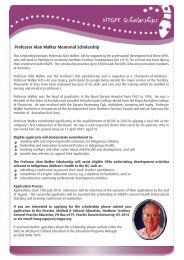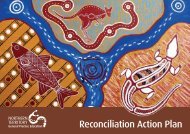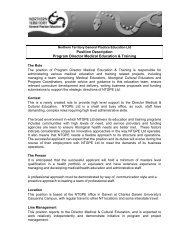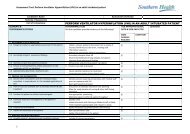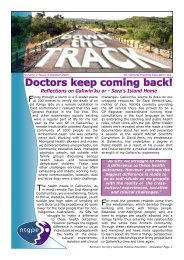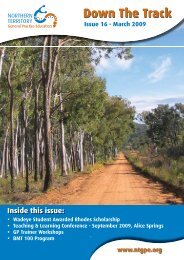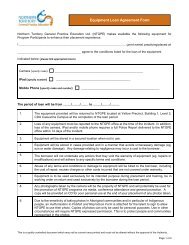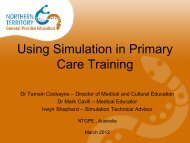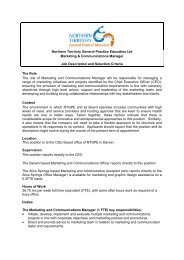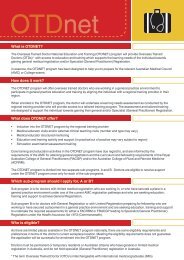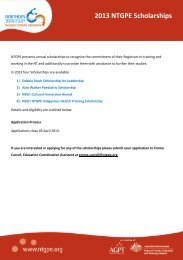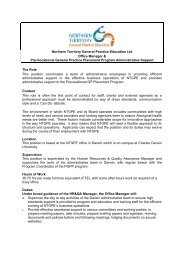Annual Report - ntgpe
Annual Report - ntgpe
Annual Report - ntgpe
Create successful ePaper yourself
Turn your PDF publications into a flip-book with our unique Google optimized e-Paper software.
Prevocational General Practice Placement Program(PGPPP) – the Junior Doctor ProgramWeekly Teaching TeleconferencesA teleconference was held each week providingprevocational doctors on placement with the opportunityto share their experiences with their peers, discussany concerns they had about their placement withthe PGPPP team and also have a protected educationsession. Topics were self selected and included topicssuch as chronic disease, contraception, case studies,mental health, diabetes, and cultural aspects of theplacement.Assesment of Junior DoctorsAs part of the ongoing assessment of the junior doctorsthey are required to complete a pre and post selfassessment of general practice skills. The skills listedare from general practice training. Each junior doctor isrequired to assess their own level on a scale of 1 to 5.This is then done again at the end of their placementand the scores are then recorded.Patient log books are also a mandatory component oftheir placement and reflect a snap shot of a 4 weekperiod. Copies of these log books are provided to thejunior doctor, supervisor and feeder hospital at the endof the placement.Learning Needs AppraisalsLearning needs appraisal (LNA) was developed as partof Junior Doctor (JD) evaluation. This was formalizedfollowing discussions with JDs and giving them theoption of choosing from different models of assessment.The advantage of LNA flows into three areas:1. JDs get an opportunity to recognize their areas ofstrength and identify the areas that needs improvementfollowing the feedback.2. Their supervisors get an opportunity to guide the JDin the practice as they get a summary of the feedback.3. Finally the RTP gets an opportunity to assess the JDprogram more objectively.The chosen format for the LNA is a combination of OSCEtype stations, short interview and/or critical appraisal byJD of a recorded clinical consultation. The stations coverthe main domains of general practice as per RACGP andACRRM curriculums with a focus on Indigenous healthand rural and remote context. The stations run for onehour and there is collective feedback at the end whichtakes about 30 minutes. Individual written feedbackwill be posted later. LNA is held on the last day oforientation and repeated at the end of the attachment.Holistic approach in general practice is paramount,hence the appraisal of the above mentioned stationscovers all domains. However, each station focuses on apredominant combination of domains as listed below.Station 1Communication and Interpersonal SkillsThis station is designed to demonstrate JD’s;• Understanding of the culture and family context.• Ability to listen and understand what others arecommunicating.• Ability to adjust communicating style to suit a widerange of individuals.• Ability to establish rapport with patient, family andtheir community, and show empathy.Station 2Applied Knowledge and Population HealthAim of this station is to highlight JD’s;• Ability to apply clinical knowledge effectively andappropriately.• Awareness of limitations and when to call for help!• Awareness of public health issues especiallyin special groups (eg: Aboriginal people) andpopulation screening tools.• Ability to utilize life style modification tools andabove mentioned skills for holistic improvement ofpatient and population.26 Northern Territory General Practice Education



